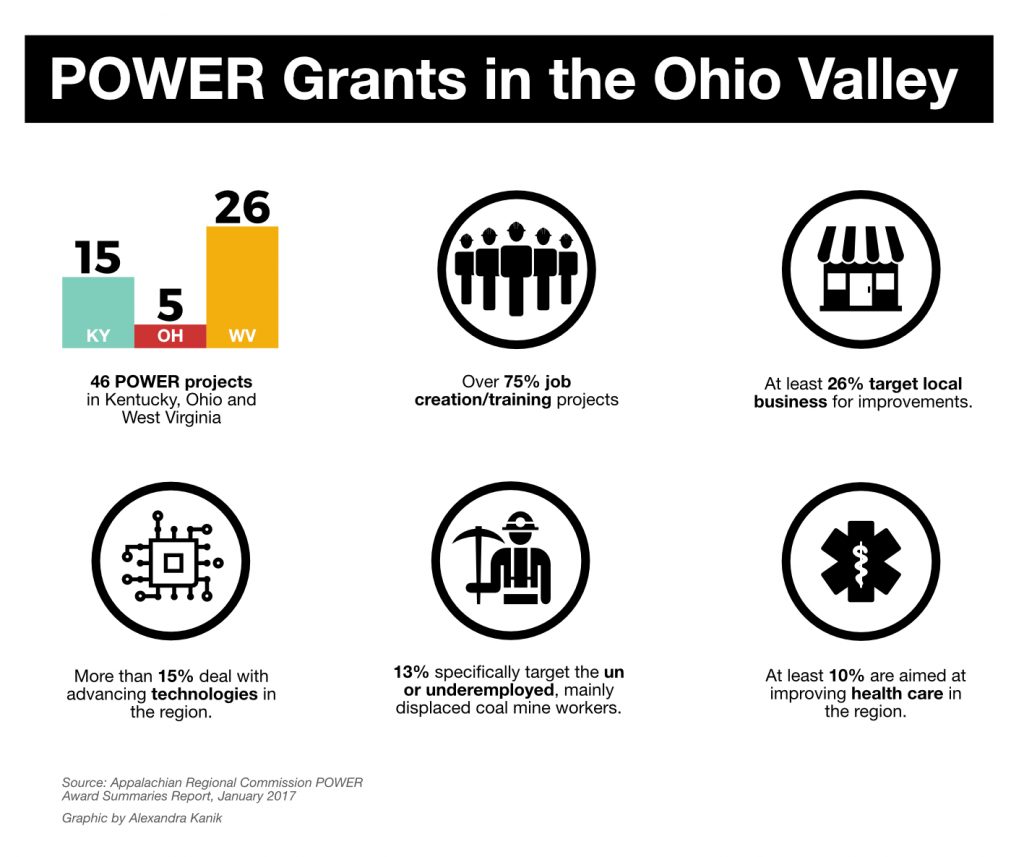News
McConnell Aide Takes Appalachian Regional Commission Role
By: Becca Schimmel | Ohio Valley ReSource
Posted on:
Not long after Senate Majority Leader Mitch McConnell of Kentucky squared off with President Trump over funding for the Appalachian Regional Commission, the ARC has a new federal co-chair with strong ties to McConnell.
Long-time McConnell aide Tim Thomas said he can see a day when the Appalachian Regional Commission is no longer needed. But that’s not something he expects to come any time soon.

“It will not happen on my watch, it will probably not happen on the watch of my successor, but I can see that day on the horizon,” Thomas said. “My vision for ARC is to see the day that this agency can shutter its doors because its goals and objectives have been reached in large measure.”
President Trump had wanted the ARC’s end to come much sooner than that. The President’s first budget proposed eliminating the commission. But McConnell and allies in Congress restored that funding.
Thomas worked for McConnell for almost 10 years as both a field representative and a field office director. He said that experience helped him become familiar with the ARC’s work.
“Coming from Kentucky, obviously I know how important ARC is to eastern Kentucky, a familiarity with those communities and their needs,” he said. “I think all of that just prepares me for my role here.”
A Long ARC
The ARC has invested over $3.8 billion in the Appalachian region since its creation during President Lyndon Johnson’s “War on Poverty.” Poverty rates have improved but the region is still home to some of the poorest communities in the country.
Thomas wants to focus on diversifying the economy by helping small business and entrepreneurs in the region as well as helping to deal with the opioid crisis. Those familiar with the ARC say Thomas will need political savvy to make that happen.
“One of the advantages I think Tim Thomas has is his connection with McConnell and that leadership and his ability to go to these other federal agencies and get their attention,” said Ron Eller, Appalachian author and an emeritus distinguished professor of history at the University of Kentucky.
Eller said it’s important to remember that the commission was created as a political entity and should be understood as such.
Most Republican presidents have sought to zero out the ARC budget, he said, but funding continues to be restored by powerful members of Congress whose districts benefit.

But Eller points out that the commission’s makeup means the majority of its power is in the hands of the governors of the Appalachian region states.
“The governors since the late 1960s have really lost interest to a great degree in the economic problems of the Appalachian portions of their states,” he said.
Eller said there has been tension in Kentucky, Ohio and West Virginia over what economic development means for the region. The dominance of the coal industry has historically prevented alternative uses for federal funds to promote economic development. Now that coal is playing a smaller role in the economy in central Appalachia, he said, states are looking at alternatives for economic development.
He said the ARC needs to focus on more rural areas and not just larger cities and growth areas.
“I think there is tremendous potential for the Appalachian Regional Commission to assist, especially eastern Kentucky, in addressing the need for diversification, increase in small business development,” he said.
One of ARC’s recent initiatives is called Partnerships for Opportunity and Workforce and Economic Revitalization, or the POWER initiative, which Congress funded specifically to help communities affected by job losses in the Appalachian coal industry. Working with the U.S. Economic Development Administration, the POWER initiative has invested nearly $73 million in coal communities in less than two years.
“Undervalued Asset”
Thomas said the downturn in the coal industry has affected more than just coal miners, it’s also hurt railroad workers and truck drivers. Thomas said small business development is one of his top priorities.
“I am bullish on Appalachia, if it were a stock I’d be buying because I believe it to be an undervalued asset,” he said.
Thomas said most new jobs are created by small businesses, and there’s no reason to think the next great entrepreneur can’t come from Appalachia.



